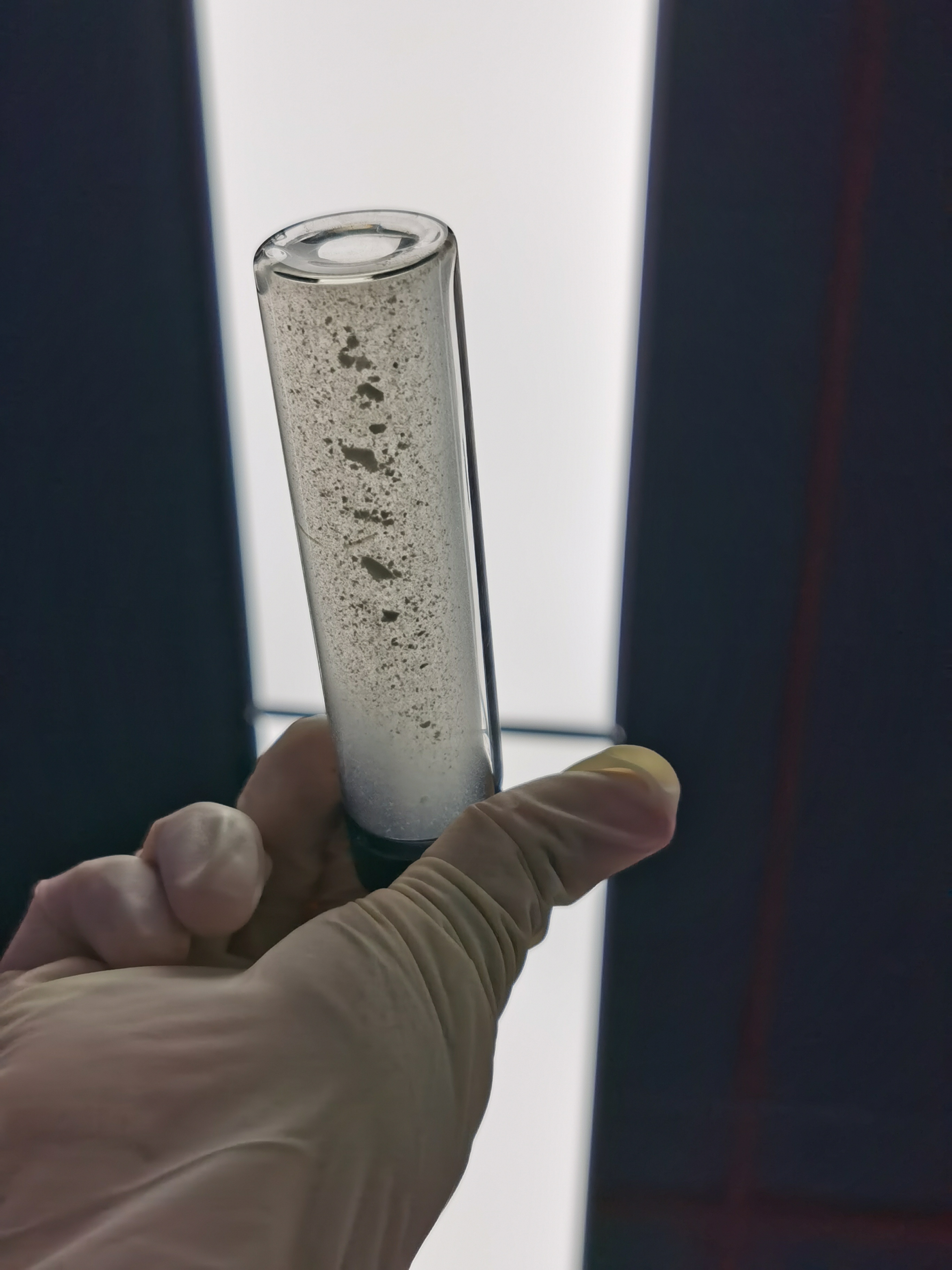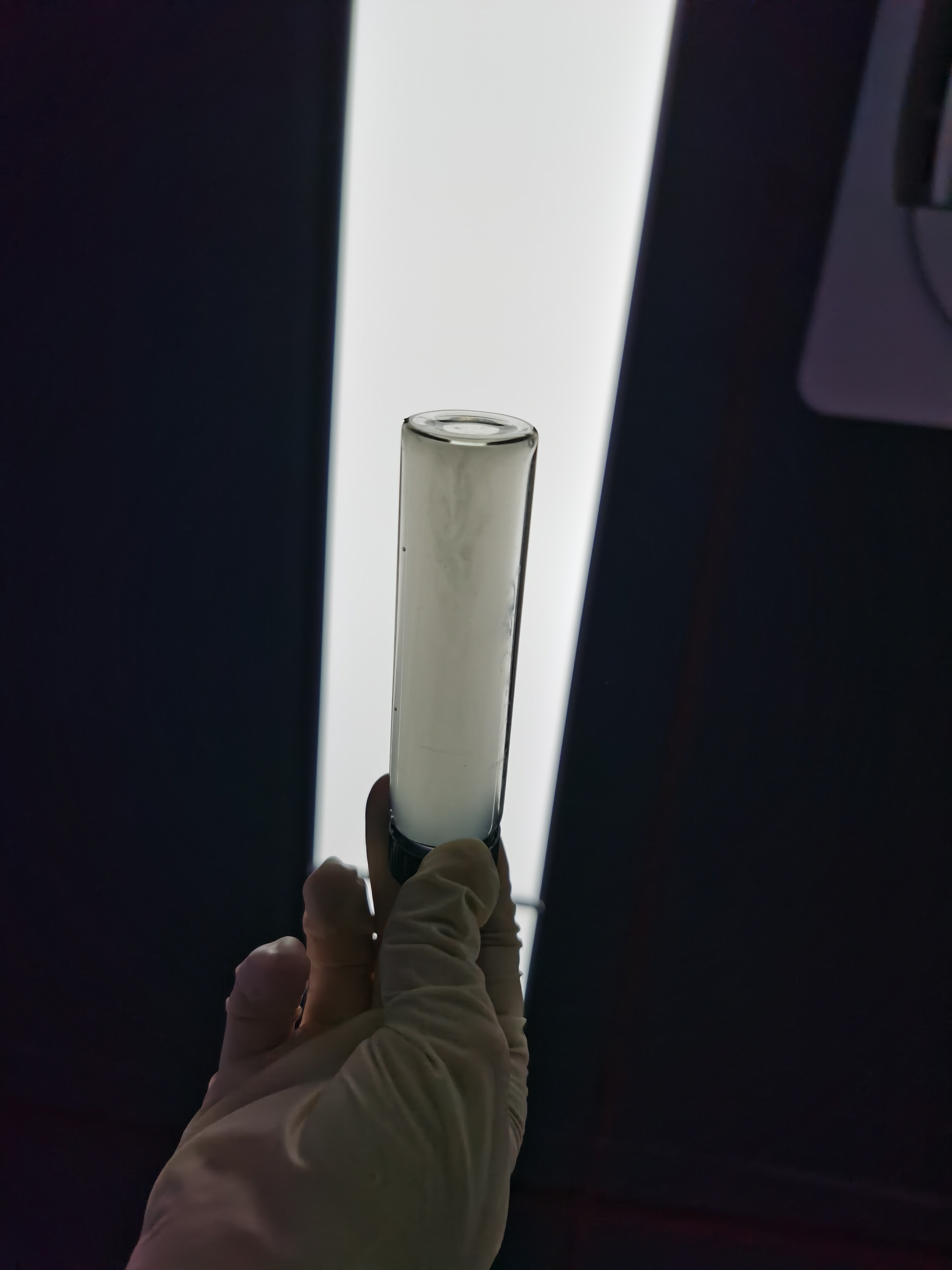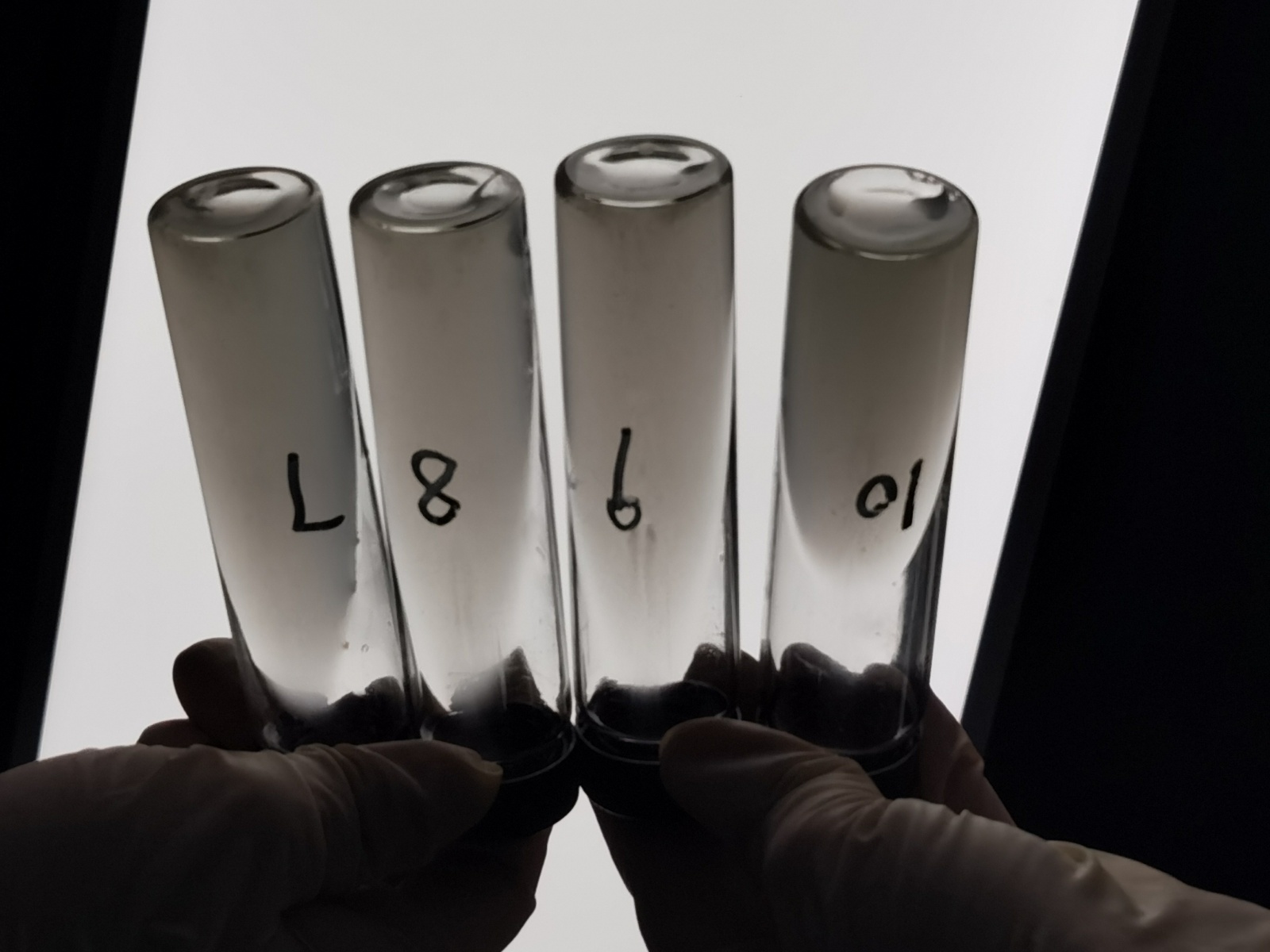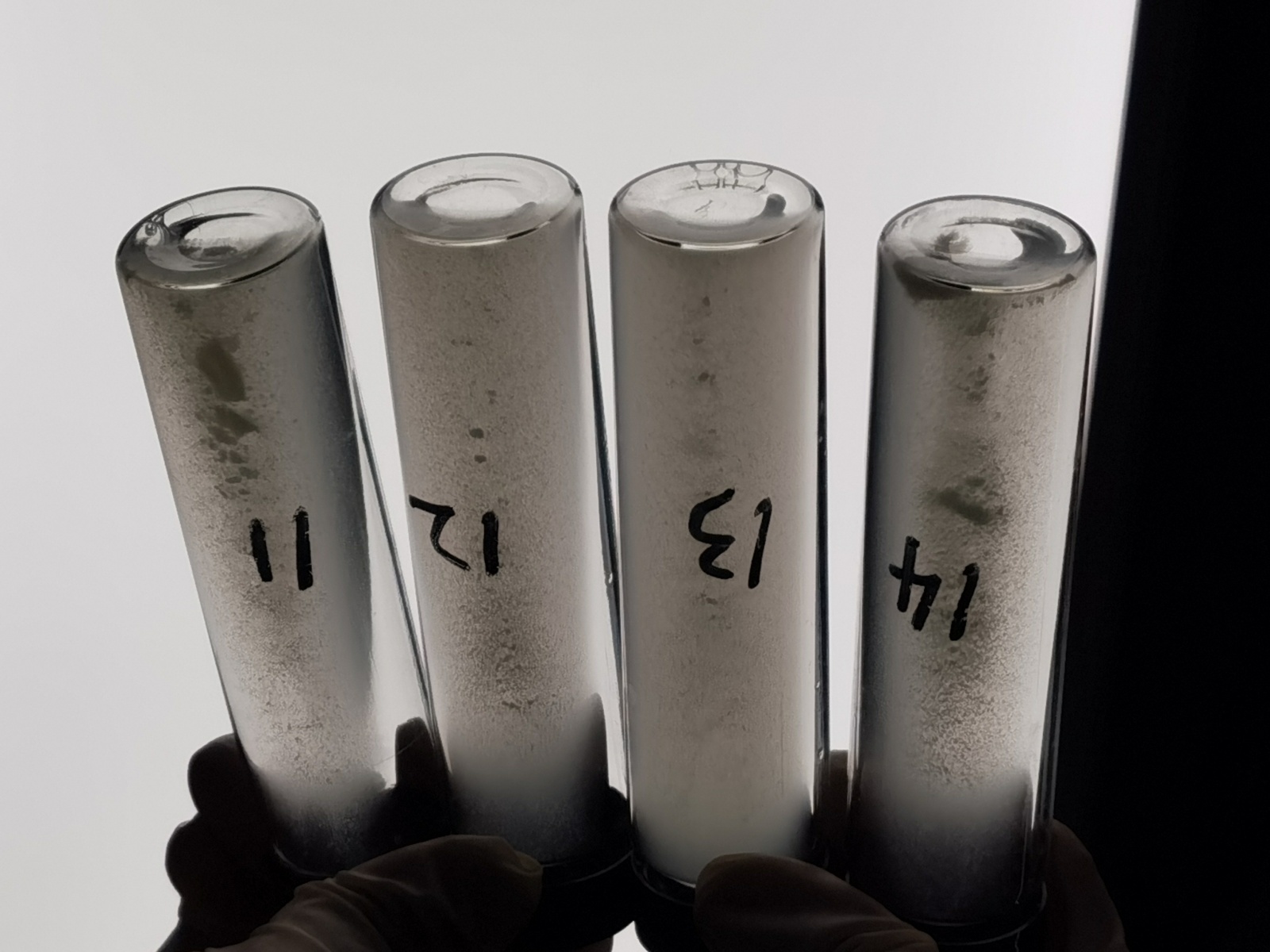Part:BBa_K3858013
antiGFP-Low encoding
Recombinant nanobody against GFP. Low affinity compared with antiGFP-High.
Usage and Biology
In 2021, GreatBay_United tried to display this antibody onto the yeast surface.
There are two kinds of construction: Solely expression the antibody or fusion expression with GFP. To display onto surface, an existing part (Aga2) were used to lead the recombination protein to the cell membrane.
For the fusion expression version, the GFP part and anti-GFP part were linked with HCV protease cutting site. Thus, if both complex and antiGFP were successfully displayed on the surface, they will be able to sense the HCV NS3 protease in solution. The protease would cut and release the antiGFP linked to GFP, and the solely expressed anti-GFP would had chance to connect with GFP. this interaction would lead to the macroscopical agglutination phenomenon when we mix two kinds of engineered yeast together and also HCV protease.
Because there were different affinity of antiGFPs, it could be several combination choices to design. To figure out which one can work best, we constructed two kinds GFP-antiGFP(H/L) and two kinds antiGFP(H/L), then mix them for their full combinations, thus there are 4 types.
Compared between with or without HCV protease added in the 4 co-cultures, we could make conclusion that all these types works well to sense HCV protease.
Reference
1. Fridy P C, Li Y, Keegan S, et al. A robust pipeline for rapid production of versatile nanobody repertoires[J]. Nature methods, 2014, 11(12): 1253-1260.
2. Toda S, McKeithan W L, Hakkinen T J, et al. Engineering synthetic morphogen systems that can program multicellular patterning[J]. Science, 2020, 370(6514): 327-331.
Sequence and Features
- 10COMPATIBLE WITH RFC[10]
- 12COMPATIBLE WITH RFC[12]
- 21INCOMPATIBLE WITH RFC[21]Illegal BglII site found at 163
- 23COMPATIBLE WITH RFC[23]
- 25COMPATIBLE WITH RFC[25]
- 1000COMPATIBLE WITH RFC[1000]
| None |







